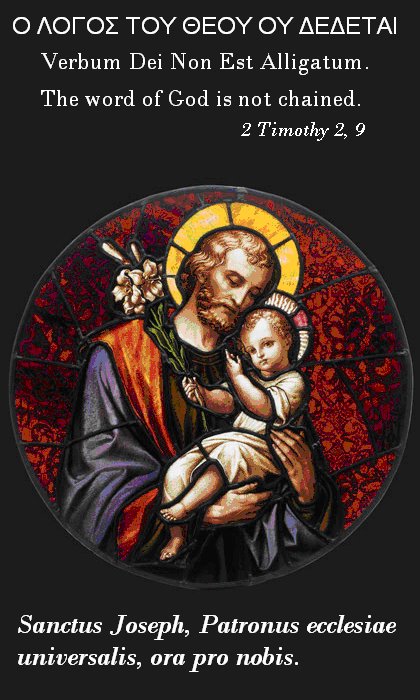The subject of the Holy Father's general audience for this past Wednesday (April 22)was Ambrose Autpert (Ambrosius Autpertus in Latin), an 8th century monk and theologian. He was born in Provence of a noble family, and served for a time as an official in the French court of Pepin the Short. His duties also included acting as a tutor for the future emperor Charlemagne. After leaving the service of the French king, he made his way to Italy, where he joined the Benedictines. He wrote a number of theological works, some of which were wrongly attributed to St. Augustine or Gregory the Great. His most important work was a commentary on the Apocalypse in ten books.
Autpert saw the Book of Revelation as reflecting chiefly on the mystery of the Church. He was less interested, in his reading of this work, in the Second Coming of Christ than in what His first coming, His Incarnation, means for the church of the current age. He says: "Christ must daily be born, die, and be raised in us, who are His Body." In this, Mary is the model of the Church, and a model for each of us, because it is also through us that Christ must be born. It can be reasonably argued that Autpert was the first great Mariologist of the Western Church, anticipating later writers like St. Bernard in some of the formulations inspired by his love and veneration for the Blessed Virgin. At the end of his commentary, Ambrose addresses God in the following words: "When you are scrutinized by us intellectually, you are not uncovered as you really are; when you are loved, you are attained." Study is important, especially study of the Sacred Scriptures, but love has the primacy.
Another of his works that enjoyed great popularity in the Middle Ages is Conflictus vitiorum et virtutum (The Conflict of the vices and virtues). He describes a kind of spiritual warfare in which 24 pairs of vices and virtues contend, the vices trying to seduce the soul with subtle arguments, while the corresponding virtues strike back using, for the most part, the words of Scripture. In this conflict Autpert opposes cupiditas (greed) with contemptus mundi (contempt of the world). This is almost the defining virtue of the monk. (Thomas Merton has some profound things to say on this somewhere. I'll try to dig that up.) As the Holy Father explains: "This contempt for the world is not a contempt for creation, for the beauty and goodness of the created world and the Creator, but a contempt for the false vision presented and suggested to us by that very vice of greed, which suggests to us that "to have" is the highest value of our existence, what gives our life its seeming importance. And in this way it falsifies the creation of the world and destroys the world. Like St. Paul, Ambrose denounces greed as the root of all evil. He imagines the objections that the rich and powerful might raise, objections like: "We are not monks, the ascetic demands made on you don't apply to us." Autpert responds: "What you say is true, but for you also, according to your manner of life and the measure of your strength, must walk the steep and narrow way, because the Lord has proposed only two gates and two paths (the narrow and the broad gates, the steep and the easy paths); He has not indicated a third gate and a third path."
Friday, April 24, 2009
Subscribe to:
Post Comments (Atom)

Interesting article. I love Merton - you should dig that up! Gen
ReplyDelete